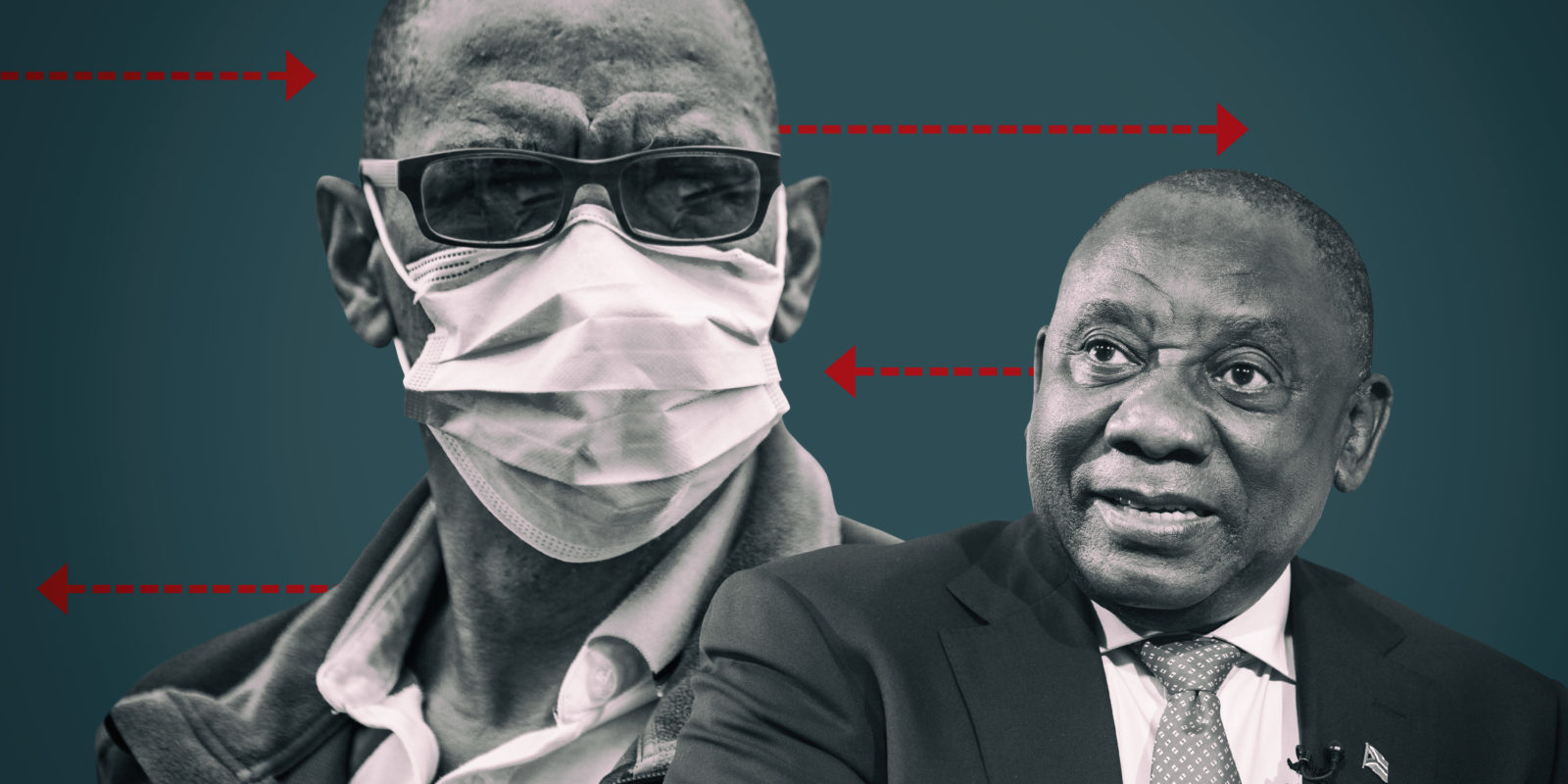ANALYSIS ANC’s virtual NEC affirms support for Zondo commission, gives Ace Magashule (sort of) one month to step aside voluntarily
- Get link
- X
- Other Apps
By Rebecca Davis• 14 February 2021

ANC Secretary-General Ace Magashule. (Photo: Gallo Images / Sharon Seretlo) | President Cyril Ramaphosa. (Photo: Waldo Swiegers / Bloomberg / Getty Images) Less
The ANC’s National Executive Committee (NEC) meeting at the weekend was ‘difficult’, said President Cyril Ramaphosa. And while strong assertions were made in favour of the Zondo Commission and the rule of law, the party has resolved to rely on the honour of the likes of Ace Magashule in voluntarily stepping down.
In his closing address to the ANC’s virtual NEC meeting, President Cyril Ramaphosa dropped hints that conflict had marked the gathering. It was a “difficult but encouraging” meeting, he said.
At the end of his statement, he noted that the meeting had been constructive “even if we have had some tactical differences about executing our tasks”.
It was a good meeting – “in the main”.
The NEC meeting was never likely to be smooth sailing given the context against which it was taking place, with reports of a concerted operation brewing between former president Jacob Zuma, supporters of the Radical Economic Transformation movement and leaders of the Economic Freedom Fighters (EFF).
Both Zuma and former president Thabo Mbeki were present at the virtual meeting.
It also took place against the backdrop of increasingly explosive testimony at the Zondo Commission investigating State Capture, and an increasingly strong pushback against that inquiry – including from the ANC’s Deputy Secretary-General, Jessie Duarte, who subsequently apologised for her critique.
As has been typical of NEC gatherings over the past few years, Ramaphosa’s statement suggested that the balance of forces had come down in favour of those supporting the New Dawn mandate – but perhaps only just.
Announcing that he himself would be appearing before the Zondo Commission, the president reiterated the ANC’s support for the inquiry and added that the party “unreservedly urge[s] our members and all South Africans to cooperate with this commission”.
His statement came a day before Zuma must appear before the commission or face criminal charges.
“President [Ramaphosa] will lead the ANC presentation to the commission and will use this opportunity to unequivocally reaffirm the position of the ANC against corruption and state capture, and its impact on the people and country,” the statement read.
Strong as these statements might look on paper, many will take them as empty words, given that they were not accompanied by a similarly robust resolution regarding ANC leaders accused of wrongdoing.
This particular debate would have been extra fraught, given that ANC Secretary-General Ace Magashule is due in court on Friday 19 February on charges of fraud and corruption.
On this matter, the NEC has decided that “affected members” (ie, ANC members accused of serious misdemeanours) must “act in the interests of protecting the reputation of the movement by acting” in line with the “revolutionary conscience of members and leaders”.
In other words, they should step aside voluntarily.
And if they don’t? The statement does not explore that possibility. It notes that the NEC also agreed that officials of the party’s Integrity Commission will “process” all commission reports “with a view to returning to the NEC with a full report within one month”.
The NEC meeting also had the Covid-19 pandemic to concern itself with – Ramaphosa noted that the government is talking to Russia about vaccines – and the upcoming local government elections.
Former ANC deputy president Kgalema Motlanthe will be serving as the chair of the ANC’s Electoral Committee, a new body within the party that will consist of “eminent cadres” ensuring that “the best and most credible candidates” are put forward for all elections.
The demise of the ANC Youth League has also been on the party’s mind, doubtless with an eye on the upcoming polls, and its revitalisation is being engineered via the establishment of (another) task team.
On the note of election campaigning, Ramaphosa said that the ANC welcomed the promulgation of the Political Party Funding Act, which has been hailed as ushering in a new era of transparency in South African campaign financing.
“We do acknowledge that this will have a significant effect on our ability – and indeed that of other political parties – to raise funds,” stated the president.
“We will continue consultations with other parties in Parliament on how to manage these issues.”
Indeed, concern over the new transparency required of political parties when it comes to donations has been one of the few issues in South African politics on which parties have been willing to reach across the aisle. DM
Comments
Post a Comment